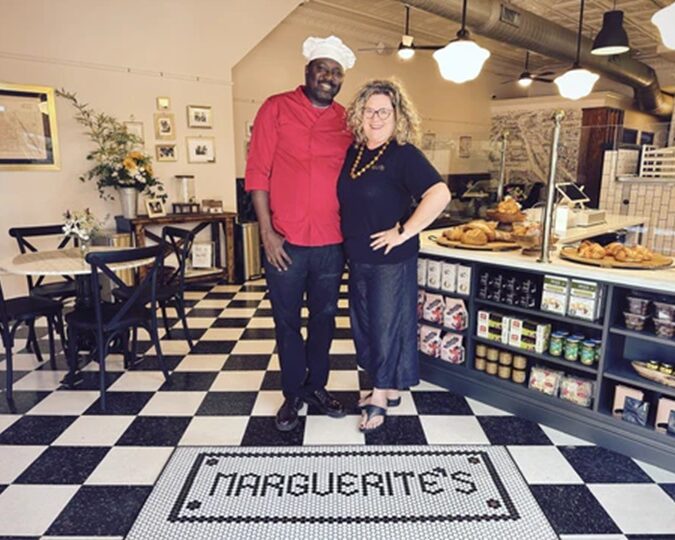
Cam Gordon
BY CAM GORDON
Do you know the name of your Metropolitan Council member? Do you know their priorities? Do you see them at community meetings or reaching out in other ways to talk to you and your neighbors?
Chances are, you don’t.
Some people have been trying to change that.
This winter a multi-party, multi-jurisdictional Metropolitan Governance Task Force agreed that “there is widespread confusion and widespread disagreement about who is and who should be accountable for Met Council vision, planning, execution (construction and operation), and performance evaluation.”
In its report to the Minnesota Legislature, the task force said, “The basic issue the legislature should address in any Metropolitan Council reform or governance changes is how the Council should be accountable to the public and to state and local governments.”
Established in 1967 by the state Legislature, the Metropolitan Council is a regional policy-making, planning and service-providing governmental entity. It oversees Metro Transit’s bus and rail system, Metro Mobility, wastewater treatment, regional parks and affordable housing projects. It has taxing authority and a budget of over a billion dollars it brings in from wastewater treatment and transit fees, state and federal sources, and a seven-county property tax.
It is managed by 17 members who are selected by the governor every four years following the gubernatorial election. The governor appoints a chair and one council member from each of the 16 districts, which are redrawn every 10 years to ensure near equal population in each district.
In the task force report, six options for governance were presented. Three of them included an elected Met Council. One, authored by task force member and Hennepin County Commissioner Marion Greene, was by far the simplest.
Greene’s proposal would keep the districts roughly the same size as they are now, and continuing to be redistricted every decade after the census to be proportional by population, but the council members would be directly elected by the residents of their districts. The council members would then elect their own chair, choose the regional administrator and have the same responsibilities as the current council.
This kind of structure should sound familiar. We already have a school board, park board, city council and county board similarly structured, with minor differences. And when campaigns come around it allows us to focus on the issues and make our decisions based on responsibilities and areas each entity governs over.
It has also been recommended in the past.
In the 1967 report by the Citizens League that inspired the creation of the Metropolitan Council, direct election of its members was recommended.
After the provision for their election was not included in the final draft of the legislation to establish the council that same year, amendments to elect them were offered by Wendell Anderson in the state Senate, and Martin Sabo in the state House. However, they were defeated by just a few votes in the House and with a tie vote in the Senate.
In 1994, a bill for the council’s direct election almost passed in both state legislative houses but was vetoed by Gov. Arne Carlson.
Most recently, in 2022, a bill for an elected council (HF 1122/SF 938) was introduced but has yet to come up for a vote. According to Sen. Scott Dibble, one of the bill’s champions, Gov. Walz has said that if such a bill were to come to him, he would sign it.
Some are calling to replace the appointment process with a “council process of governments” model where members would be appointed by elected officials of local government from within the seven counties. This approach would not bring the selection into the public domain, resulting in council members being more accountable to units of the local governments than to their residents, and would not yield the same benefits as direct election. It keeps the issues unique to the Met Council at arm’s length, buried under other local issues in mayoral, city council, county board and town officer election campaigns.
Some have said that the ballot is already too long and that voters couldn’t handle it. An elected Met Council would add only one more position on the ballot every four years for an office that sets policy and oversees services that directly impact the lives of every voter. Perhaps moving the election to odd years, when the ballots are shorter, would be more acceptable.
The Metropolitan Council is a powerful body that controls much of our public transportation, regional housing policy, water treatment, and regional parks and trails. It operates the third-largest police department in the state, Metro Transit Police, and oversees the regional planning process, including review and approval of local comprehensive plans throughout the seven-county metropolitan region.
The voters deserve deep engagement and, if warranted, intense campaigning and debate to determine who can best be their voice and represent their values – not the governor’s – when wielding this kind of power and making these kinds of long-term decisions for them and the region.
Such an arrangement could not only make the Met Council more responsive and accountable, but also its members more empowered.
As it is now, members of the council lack credibility among most stakeholders. Everyone assumes that they are more likely to follow the lead of the governor-appointed chair and professional staff and not those who live in the districts they represent.
An elected office holder who knows, and can show, that they have a committed and supportive community behind them on an issue will act with more confidence and be listened to more carefully by colleagues and staff.
We have tried this governor-appointed model for 57 years and, despite the best efforts of its appointed members and a long list of governors, the Met Council still lacks credibility and is too often seen as out of touch, unresponsive and unaccountable to the residents it serves.
An elected council could attract better candidates to the position who would be more proactive and willing to take the initiative on solving problems and not rely on an appointing authority for direction.
The election process would be an open, public process that all could see and follow if they desired. Appointments, even with open appointment laws, too often leave space for behind-the-scenes campaigning for the positions, which may or may not even get the attention of an elected governor.
An elected Met Council might also give the Legislature a chance to explore improved procedures, including some form of public financing and enhanced voter education.
Most importantly, the election campaign would become a critical opportunity for council members, candidates and others to educate the public about Met Council policies and services and for council members to learn from the public about what they want and need from the council and for the region. Appointed officials have no particular reason to have such contact with the public.
What the Citizens League wrote in 1984 still holds true today: “The Met Council is making policy that will have a profound impact on the Twin Cities area in coming years. Such decisions should be made by elected, not appointed, officials.”
























